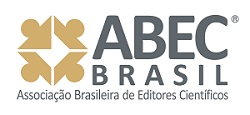Influence of different management systems on soil physical attributes and organic carbon
DOI:
https://doi.org/10.5039/agraria.v7i3a1462Keywords:
bulk density, soil porosity, resistance to penetration, stratification rate of soil organic carbonAbstract
The occupation and agricultural management cause changes in soil physical attributes and organic carbon. Therefore, the objective of this study was to evaluate the influence of the agricultural use and management, under different cropping systems, on physical attributes and in the levels of soil organic carbon in an area of a soil classified as Hapludox. The study was carried out in the municipality of Jaboticabal, São Paulo State, involving areas under
no-tillage system, conventional tillage, rubber trees with tropical Kudzu (Pueraria phaseoloides) between rows and native forest. The soils were studied at depths of 0-0.05; 0.05-0.10 and 0.10-0.20 m. The experimental design was completely randomized split plot with six replicates. Disturbed and undisturbed samples were collected for determinations of physical properties, organic carbon, organic carbon stocks and rate of organic carbon stratification.
No-tillage system and system with rubber trees with tropical Kudzu (Pueraria phaseoloides) between rows were the commercial cultivation systems with the highest values of stocks and stratification rate of organic carbon in the surface layer, indicating that these systems are the best to maintain soil physical quality. All studied cropping systems showed bulk density values that do not affect root growth. However, the studied management systems affected soil physical and chemical properties, especially in the subsurface layer (0.10-0.20 m).



